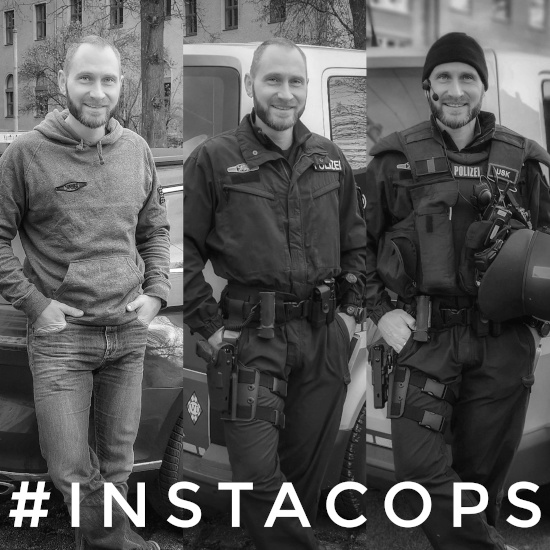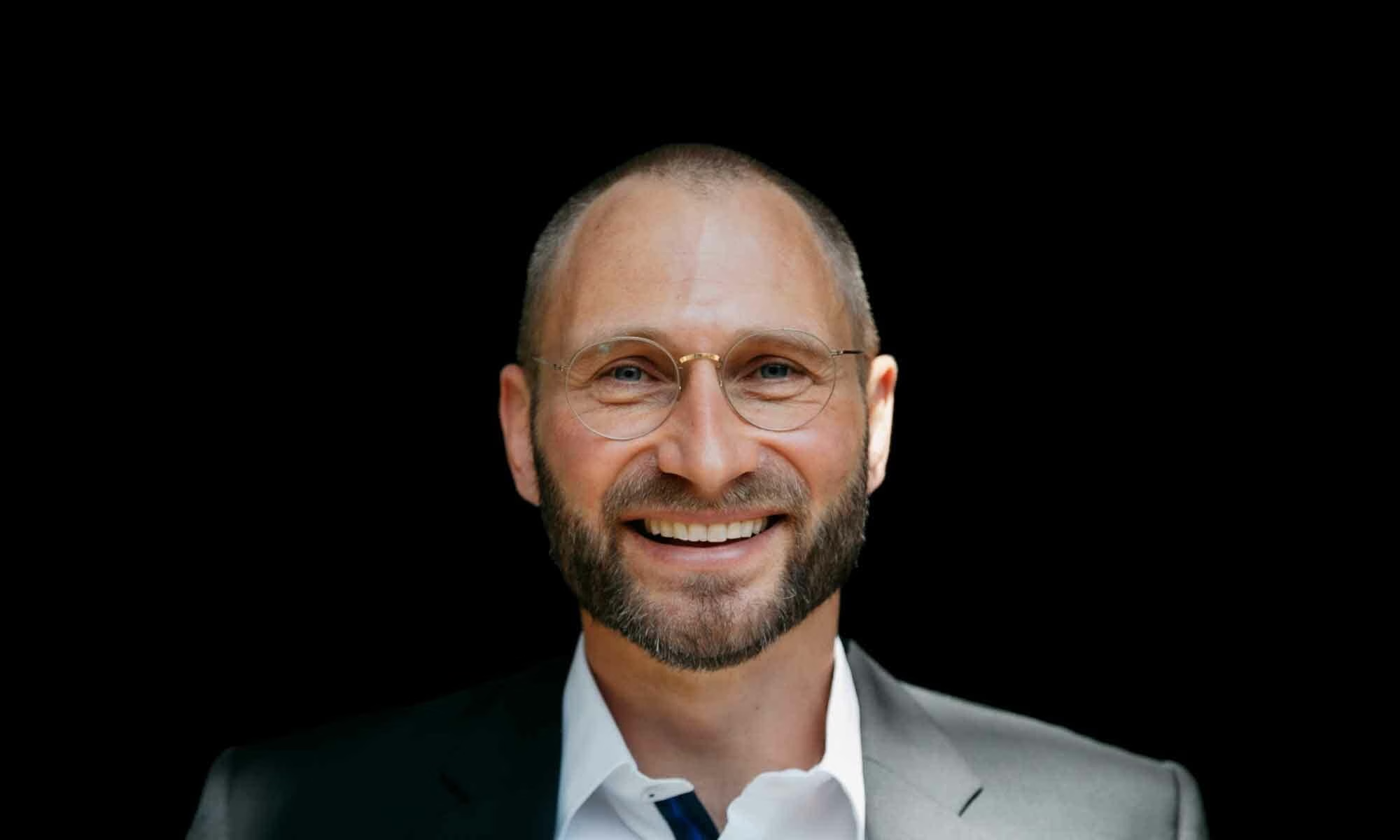Comment of a scientist and police officer.
Published on 24.05.2020 in German Police, 06/20, p. 20 ff

Some of my presentations on Generation Z also deal with the private accounts of police officers on social media if they are recognizable there as a "cop". The handling of these so-called #instacops varies greatly depending on the authority and federal state. In some police forces, for example, photos with uniforms on a private account are subject to disciplinary review, as this photo must supposedly have been taken while on duty.
In contrast, there are federal states in which civil servants are encouraged to have an Instagram account, especially managers. What's more, the topic is more topical than ever, #instacop profiles are currently springing up like mushrooms. Every day, Instagram suggests two or three new profiles for me to follow. In light of this development and the many discussions I have had on this topic, I would like to give you my opinion on running private Instagram accounts where you are recognizable as a police officer: I personally would rather not do it! Why?
What speaks against it?
1. a lot of work
Through my conversations and DMs (direct messages) with #instacops, I was able to get an idea of how much work is behind a good account. The Instacops who took part in my survey spend at least an hour a day (up to seven!) creating content, communicating, etc. This is a huge investment for me in the long run. This extensive investment would be unacceptable to me in the long term. Unfortunately, other things that are more important to me would ultimately have to suffer.
2. special responsibility for content
As soon as you are recognizable as a police officer on your profile, your employer automatically has a legitimate interest in the content you post. This is because some civil servant duties also apply in our free time; in particular, we must live up to the respect and trust that our profession demands. Accordingly, we must refrain from doing anything that could damage the reputation of the state, the official authority or the professional civil service. I don't want to split legal hairs here and discuss to what extent which content could be damaging to reputation. But my experience from my presentations, in which I also talk about various #instacop profiles, is that the assessments of the profiles are very different.
They range from astonishment that such a thing even exists to open criticism or even horror such as "such lewd photos don't fit next to pictures with uniforms". But there are also always a few open, positive reactions, along the lines of: "great account, great advertising for our profession". Overall, however, many superiors seem to have a rather distanced relationship to the topic. Accordingly, I don't know whether I would expose myself to the risk of my superiors judging a well-intentioned post as bad or even damaging to their reputation, along with the possible consequences. And as I mentioned, very few accounts have caused any real storms of enthusiasm among managers. One thing should not be forgotten, even with a private account: Every statement is ultimately public and cannot be taken back. A screenshot is created in a second, every story is saved in a second.
3. special responsibility for direct messages
From my conversations with #instacops, I also know that they also receive DMs in which suicide is mentioned or criminally relevant facts are communicated. So it's about immediate danger prevention or criminal prosecution. Morally, every police officer will feel obliged to take action. Deriving a legal obligation to act may be another matter and will depend on the individual case. The specific facts of the case must certainly be assessed and this must be done in the context of the special features of the principle of legality for criminal offenses that become known during leisure time. Presumably, it would also be necessary to clarify the question of whether one does not gain official knowledge if one calls up the DM while on duty. But this discussion alone shows that operating such an account can also put police officers under pressure to act, which entails legal uncertainties and requires time and energy.
4. annoying comments or direct messages
Unfortunately, there are many unmannered and uneducated people on the internet who make sexist comments or even 1TP5 hate speech. Unfortunately, these people are not only found on social media. But especially there, in the supposed anonymity, it is of course easier to unload the intellectual garbage in the form of comments or direct messages on the pages of recognizable "public servants". This takes up unnecessary time due to the reactions required (deleting or replying to comments, etc.), but can also become a real emotional burden.
5. excessive demands on the organization
Based on my own experiences, but also on the discussions I have had during my presentations, I have come to the conclusion that many police authorities are not yet comfortable with the phenomenon of #instacops. Two different generations with very different ideas of appearance in social networks, representation and storytelling are coming together. The perceptions and ideas of baby boomers (digital naives), who are often superiors, meet those of millennials and mobile natives. As I know from my interviews with #instacops, there is also a controversial discourse within the younger generation, sometimes mixed with a debate about envy. The risk of being discredited, whether by superiors or colleagues, is therefore very real. Everyone has to ask themselves whether it's worth it.
What speaks for this?
1. police officer as a person and advertising for the profession
I would like to start by summarizing the answers to one of my surveys. I asked in an Insta/Facebook story: "I think photos in uniform are... because..." The overall tenor was consistently positive with various reasons. It makes the important work more visible, you can be proud of your job and should be allowed to show it. It is also part of the identity and shows followers that a police officer also has a private life. To be honest, I personally find the variety of different #instacop accounts impressive. In my opinion, the vast majority of them make an important contribution to ensuring that we as the police are perceived as we are: namely a damn great bunch of people who are committed and go to great lengths to ensure peaceful coexistence.
It is also evident in many places that we stand up for the Basic Law and our fundamental values, that we are politically educated and also hold our own opinions (cf. https://www.instagram.com/tagebucheinerpolizistin/ resp. https://tagebuch.polizistmensch.de/podcast-folgen/ and here especially podcast no. 7: "Shit job cop?" - My opinion). You can see that we are passionate about our work and creative when solving problems and posting, that humanity is important to us, that we are people with heart, mind and humor. And the many #instacop accounts show all this in different facets, but always individually credible.
There is no better free advertising for our profession and it can also help to cast our public image in a more human light. No public relations department or recruitment agency can do this so authentically. That's why I personally take a totally relaxed view of the development of the #instacops and would do as the Bundeswehr does: do it and switch on your brain. That would be the short summary of their really great social media guidelines (https://www.bundeswehr.de/de/social-media-guidelines-bundeswehr). Whereby the latter would be my basic advice!
2. danger recognized, danger averted
But can't certain profiles or content also harm us? Yes, of course. But we should take a differentiated view. One thing has fundamentally changed with social media: there are no longer just the "traditional four powers" (judiciary, legislature, executive, media) but also a fifth power, the so-called "networked many". Something is quickly discovered, shared, becomes an avalanche and can turn into a scandal - which, however, is often over after a few days. But we should get used to this fast pace. It would be all the more important to give our colleagues a few tips (see Bundeswehr), then 99.9% will certainly represent the police to the outside world in an excellent way, depending on their style.
And the remaining 0.1%? What could be "better" than someone writing down for all to see that they are acting in an extremist, sexist or otherwise obviously non-compliant manner with the duties of a civil servant? Unfortunately, this will probably always be a scandal at first, but it should be manageable. After all, it is easy to secure and provide proof of the offense and every disciplinary authority is happy about simple cases and can show how much we value self-cleaning and how well it works.
3. taste is individual
Of course, there is also a large gray area, the "matter of taste", which regularly leads to controversy in the context of my lectures, e.g.: do sexy pictures or stories fit into a profile in which you can also be seen in uniform? Personally, I'm Bavarian and our motto is "live and let live" (or for non-Bavarians according to Frederick II of Prussia: "Here, everyone must be happy in their own way") and even if I don't personally like one or two things, we shouldn't be the taste police. What's more, the accounts are only followed by people who like exactly that. And so every pot has a lid. And some even have so many followers that they enjoy the attention of the print media (see e.g. https://www.bild.de/regional/dresden/dresden-aktuell/adrienne-koleszr-deutschlands-schoenste-polizistin-wieder-auf-streife-59309842.bild.html or https://www.bild.de/regional/berlin/berlin-aktuell/berlins-schoenster-instacop-bei-dieser-polizistin-ist-flirten-verboten-61962310.bild.html).
Police officer as influencer?
Finally, a brief reflection on influencers. Yes, I have the impression that profiles with photos in uniform arouse more interest and get more followers. And yes, there are also some profiles that do paid advertising for fitness drinks, events or other stuff. As long as there is no direct link between the uniform and the promotional item, I personally take a relaxed view. On the other hand, I find uniform photos with an advertising drink or advertising message unacceptable and incompatible with our profession. Apart from my opinion, it becomes a secondary activity requiring a permit at the latest with paid advertising, although I am aware of very different assessments here too. One federal state grants such permits, another strictly rejects them. Let's see what prevails (in court).
The paradox: why do I do it anyway?
But now to the actual paradox. In the first part, I argue why I would not appear as a police officer on social media. But in fact, I've had an Insta account since August 2019 and am recognizable as a police officer there. I would like to resolve this contradiction. A friend gave me the idea of opening an Insta account. She is very active on Insta and we got talking about it because I wanted to know what she actually gets out of it. She turned my question around and asked me if my colleagues knew what I was doing all day, what events I was attending, etc. Because in her experience, many friends are interested in that. Because in her experience, many friends and coworkers are interested in that. Of course, as a police officer it's not that easy, I can't post photos of meetings or missions privately. In my opinion, "we" as an organization are still a long way off that.
But I took the thought further and put myself back in the situation when I was a police sergeant in the support squad. What did I know about the commander? Nothing. And I would never have dared to speak to him and ask what kind of person he was. So I had the idea to try it out and make it more tangible. That's why I now regularly post where I'm out and about. However, always with a strong reference to my alter ego as a scientist and minimal to no allusions to my actual job as a manager in the Bavarian police force or as a commanding officer. There are two reasons for this: firstly, based on my previous experience with my current account, I believe that the enthusiasm in the organization would be very limited. Secondly, it would probably get me a lot of attention and followers, which I honestly don't want at the moment because the effort involved would probably increase exponentially.
Live experiment
Because, and now we come to the main reason: I see my Insta account as a "live social experiment" with which I try to better understand the world of #instacops, among other things. I wanted to find out how it feels to share private things, what the reactions of followers are like, how quickly the account grows and how I deal with the likes or lack of likes, how it all affects me. What's more, since G7 and G20, I can no longer hide my profession online - if you google my name, you'll find plenty of pictures or clips of me that have been published in the name of my employer. So this hurdle was also low for me.
My first personal impressions as a "half" #instacop ("half" because only a small police force) are quite positive. Even if I don't share any direct official matters, anyone who follows me can get to know me a little. For example, you find out that it's important to me to stay fit, that I have a family I spend time with and that I consider knowledge (science), i.e. engaging # brains, to be extremely important. I also think you can see from my photos that I'm a cheerful guy who's always in a good mood. It doesn't hurt if the employees know that.
Outlook
Perhaps one day Bavarian police officers will officially have the opportunity to become corporate influencers, similar to what the police in Lower Saxony already do. Then you could post more, e.g. insights into training, but also convey values and attitudes. You could also show that leadership is also really fun and that you can shape something. It would be worth a try, because I am firmly convinced that we could optimize not only the recruitment of young talent in general, but also the recruitment of future leaders.
However, it remains to be seen whether I will continue to run my account in this way. Because the account does take up a bit of my personal time. That's why I'll be evaluating it in August 2020 and all followers will be able to give me structured feedback. Based on this feedback, I will decide whether and how my @doc_bay experiment will continue. I look forward to feedback and discussions about the article!
To the author:
Dr. Bernd Bürger has been a member of the Society for Work, Economic and Organizational Psychological Research since 2016. He began his career in 1997 with the Bavarian police in the middle police enforcement service. This was followed in 2002 by a degree in public administration (FH). While working, he completed a Master's degree in Criminology and Police Science at the Ruhr University Bochum in 2010 (ECTS A). In 2013, he obtained a Master's degree in Public Administration - Police Management at the DHPol (ECTS A). In 2015, he completed his doctorate with the topic "Working time models for the police patrol service". He spent more than 10 years of his service with the Dachau support unit, an evidence recovery and arrest unit, where he has been a senior police officer since 2015.

